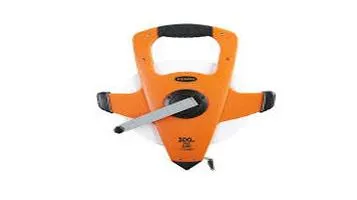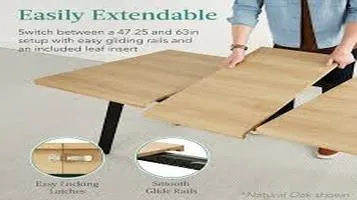High-Quality Measuring and Marking Tools: A Comprehensive Review
High-quality measuring and marking tools are essential for precision and accuracy in various trades and crafts, including woodworking, metalworking, and construction. These tools are designed to deliver precise measurements and clear markings, ensuring that projects meet exact specifications. High-quality options often feature durable materials like stainless steel or hardened aluminum, providing longevity and resistance to wear and tear. Advanced measuring tools may include laser levels, digital calipers, and micrometers, offering enhanced accuracy and ease of use. Marking tools, such as fine-tip pens, chalk lines, and scribing tools, provide clear and consistent markings essential for detailed work. Investing in superior measuring and marking tools not only improves the quality of workmanship but also increases efficiency and reduces costly errors.

When it comes to precision in craftsmanship, the importance of high-quality measuring and marking tools cannot be overstated. Whether you are a professional carpenter, machinist, engineer, or an enthusiastic DIYer, investing in reliable tools is essential for achieving impeccable results. High-quality measuring and marking tools provide the accuracy and durability necessary for a variety of applications, from woodworking to metalworking. In this review, we delve into the key attributes, benefits, and considerations involved in choosing these indispensable tools.
Precision and Accuracy
The hallmark of high-quality measuring and marking tools is their precision. Tools such as calipers, micrometers, rulers, squares, and marking gauges are designed to provide exact measurements, which are crucial for ensuring that components fit together perfectly.
For instance, digital calipers offer readings with an accuracy down to 0.01 mm, making them ideal for detailed tasks. Unlike traditional calipers, digital variants reduce the chance of human error, allowing for more consistent results. Similarly, combination squares with finely etched markings offer a higher degree of precision compared to their lesser counterparts. The accuracy of these tools can significantly reduce material wastage and time spent on corrections, ultimately leading to more efficient workflows.
Durability and Build Quality
The durability of measuring and marking tools is a significant factor that influences their long-term value. High-quality tools are typically constructed from robust materials such as stainless steel or hardened aluminum, which resist wear and tear over extended periods. For example, machinist squares made of hardened steel maintain their accuracy even after years of use, while cheaper alternatives may degrade quickly.
In addition to material choice, the build quality also encompasses the tool's design and manufacturing tolerances. Tools that are well-engineered will have tighter tolerances, ensuring that they remain accurate over time. For instance, a good-quality marking gauge will have a finely adjustable mechanism that remains stable, providing consistent markings without slipping.
Ergonomics and Usability
Another critical aspect of high-quality measuring and marking tools is their ergonomics and ease of use. Tools that are comfortable to handle and straightforward to operate can significantly reduce user fatigue and error. For example, a well-designed digital caliper will feature a clear, easy-to-read display and smooth sliding action, making it effortless to take measurements quickly and accurately.
Similarly, marking tools with ergonomic handles and clear, precise markings can make the process of laying out cuts or joins much simpler. A marking knife with a comfortable grip and a sharp, durable blade can create clean, precise lines that are easy to follow, ensuring that cuts are made accurately.
Versatility and Functionality
High-quality measuring and marking tools often come with additional features that enhance their versatility and functionality. Multi-functional tools like combination squares can perform a range of tasks, from measuring angles to checking the flatness of a surface. This versatility reduces the need for multiple tools, saving both space and cost.
Digital measuring tools often come with features such as data hold, zeroing functions, and even data output for connectivity to computers or other devices. These features can streamline the measurement process, especially in complex projects where multiple measurements need to be recorded and analyzed.
Brand Reputation and Warranty
When investing in high-quality measuring and marking tools, it is often beneficial to consider the reputation of the brand. Established brands with a history of producing reliable tools are more likely to deliver products that meet high standards of quality and performance. Brands such as Starrett, Mitutoyo, and Bosch are renowned for their precision instruments and are trusted by professionals worldwide.
Additionally, a good warranty can provide peace of mind, ensuring that the investment is protected. High-quality tools often come with comprehensive warranties that cover manufacturing defects and, in some cases, even normal wear and tear. This assurance can be invaluable, particularly for tools that are used frequently in demanding environments.
Conclusion
In conclusion, high-quality measuring and marking tools are invaluable assets for anyone involved in precision work. Their precision, durability, ergonomic design, and versatility make them essential for achieving professional results. While the initial investment may be higher compared to lower-quality alternatives, the long-term benefits in terms of accuracy, efficiency, and reliability are well worth the cost. By choosing tools from reputable brands and considering factors such as material quality, build design, and additional features, you can ensure that your measuring and marking tools will serve you well for many years to come.






